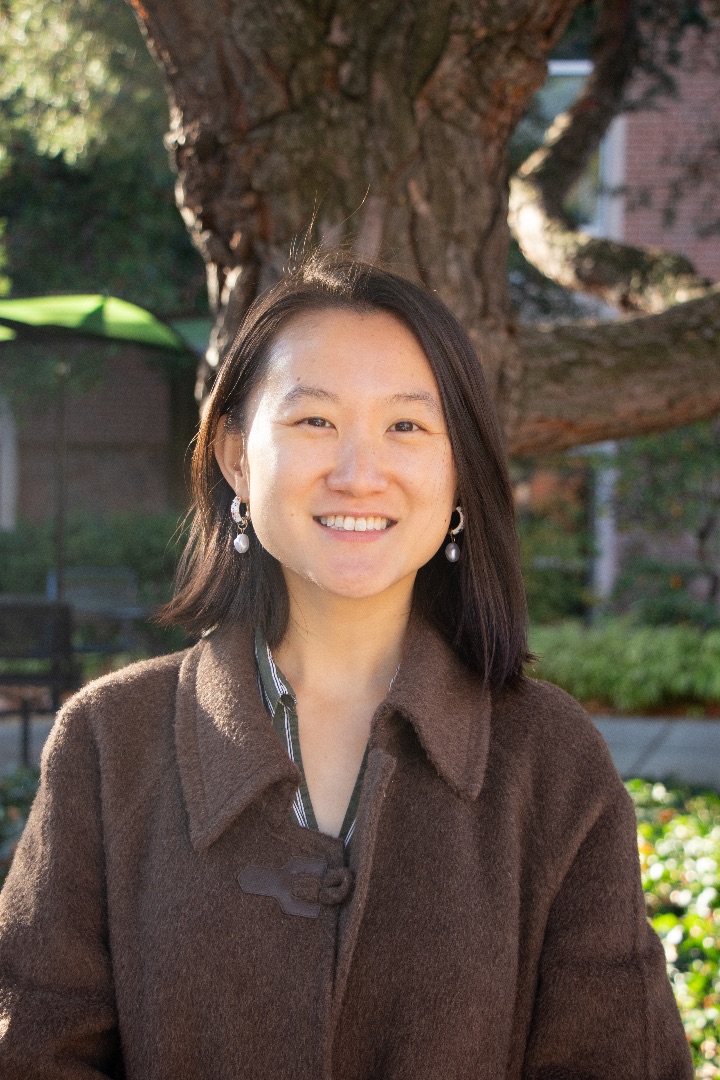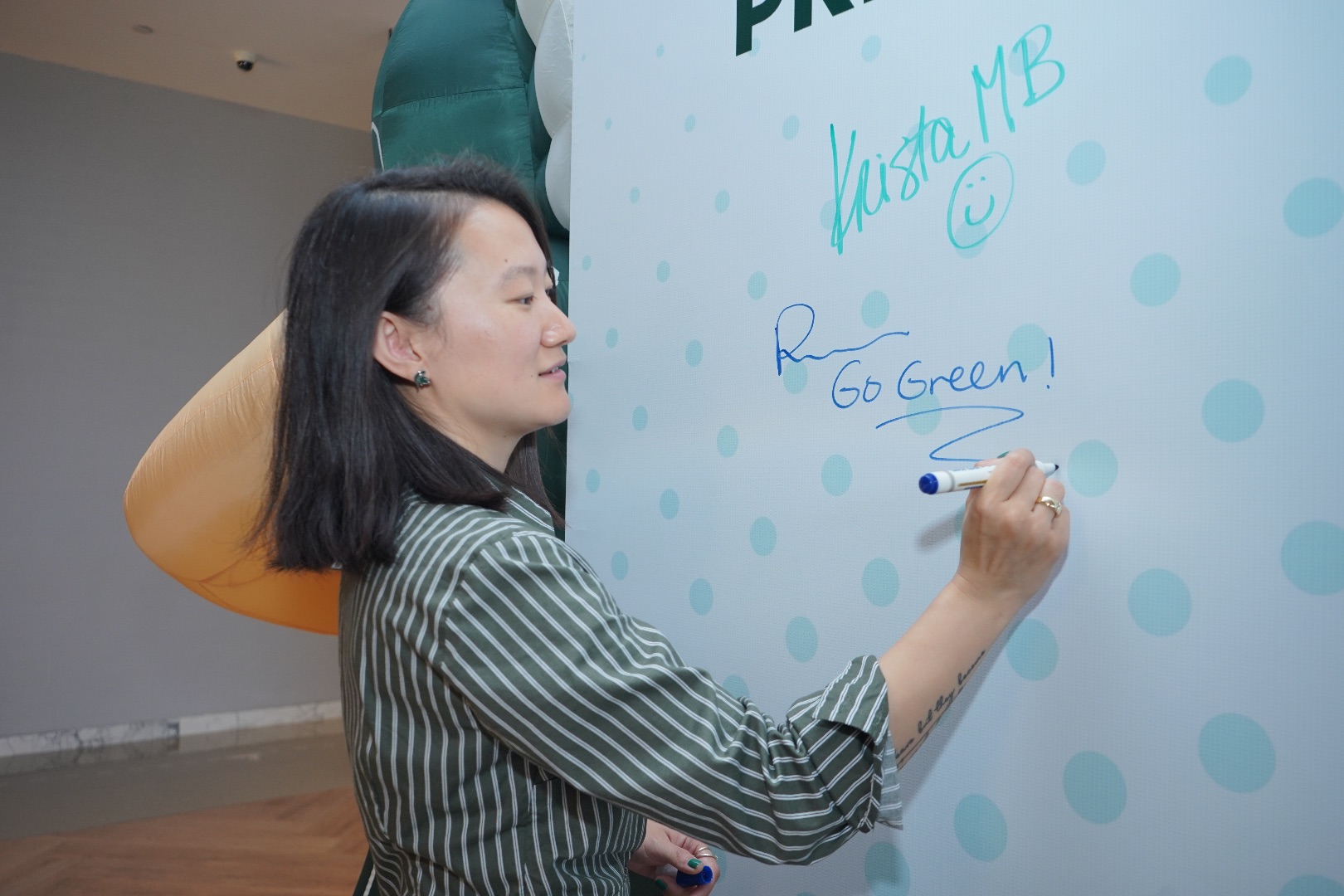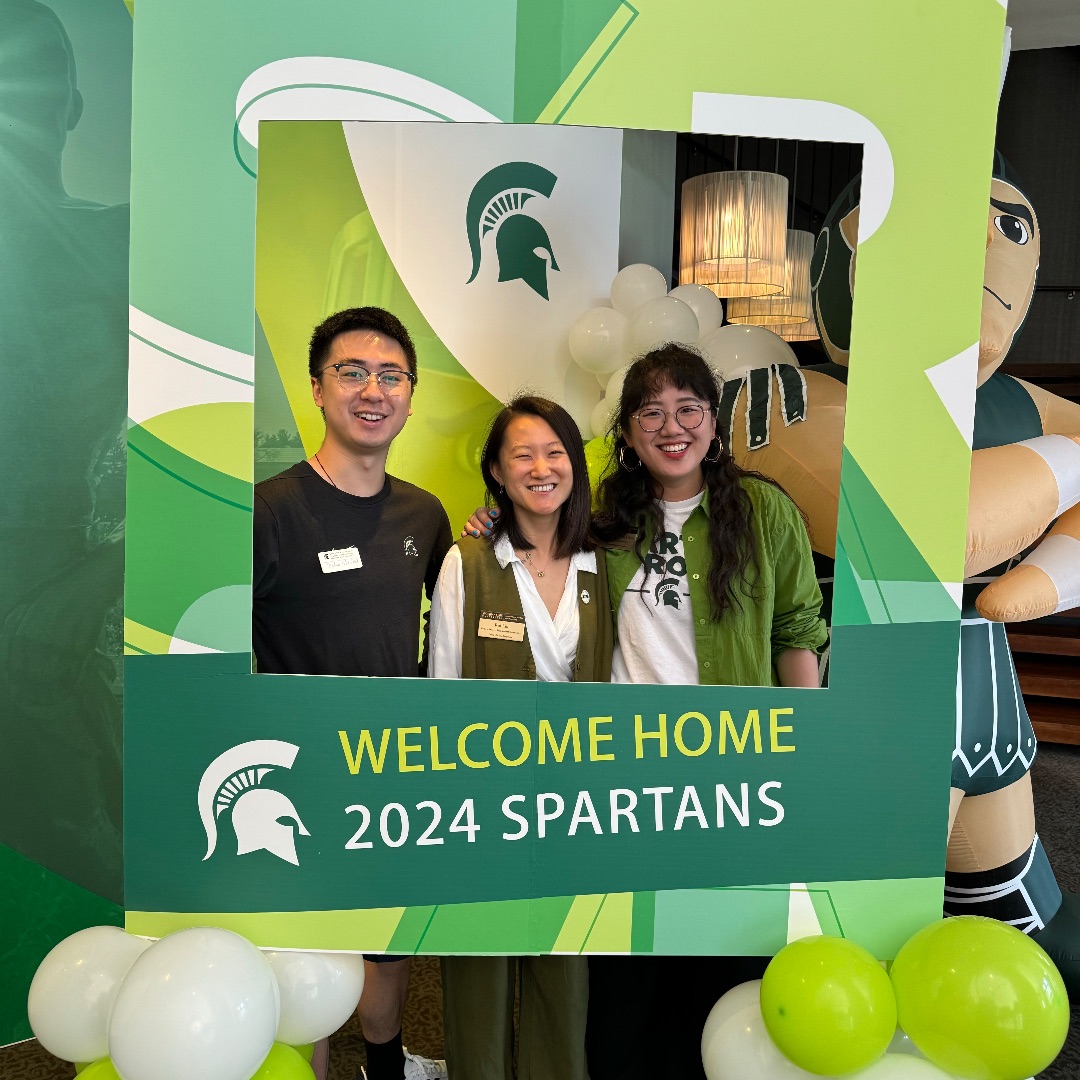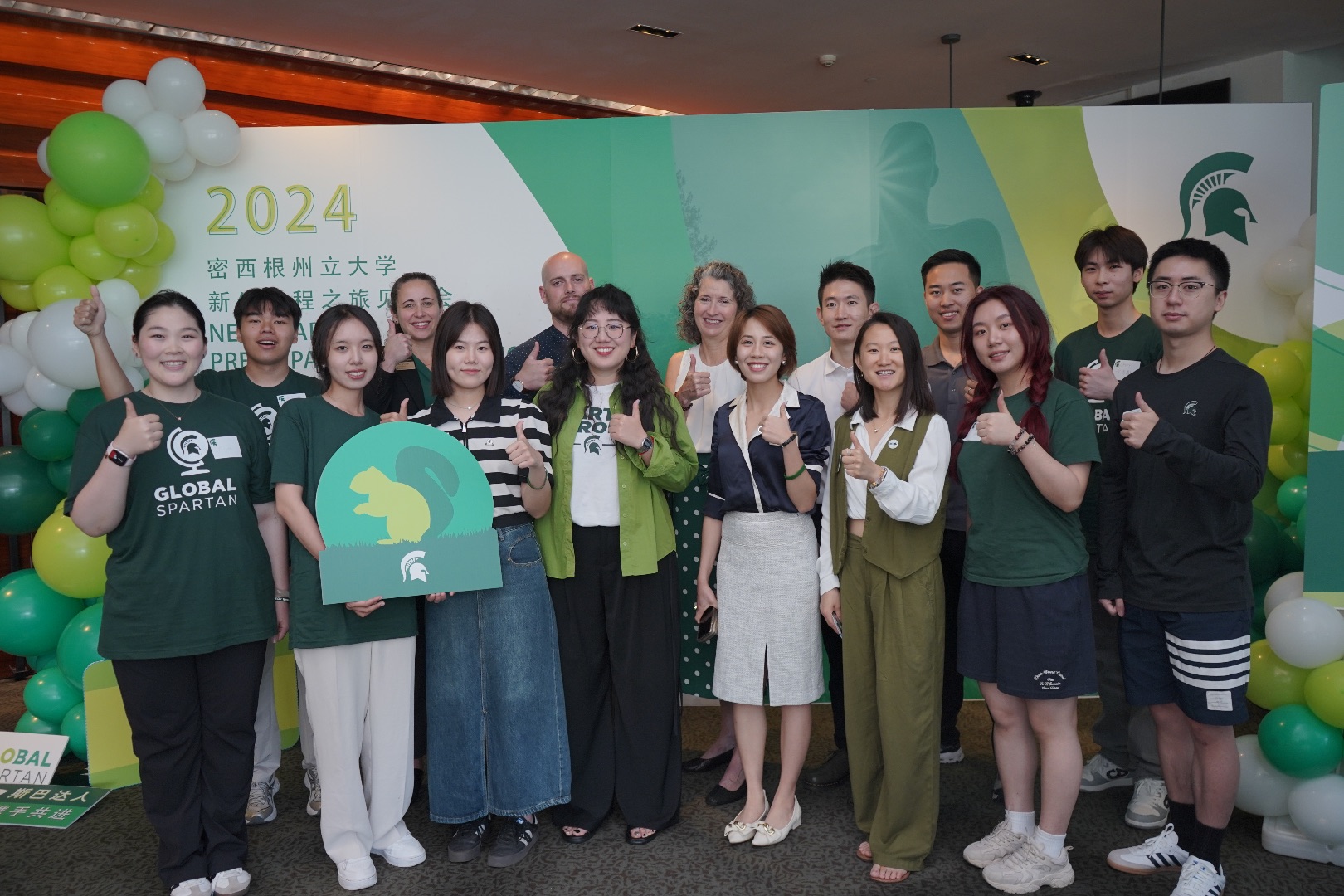
Rui Liu is the Chinese student engagement coordinator in the Office of China Programs. Holding a master’s degree in higher education from Central Michigan University and a bachelor’s degree from Michigan State University, Liu oversees communication with all Chinese students and their families at MSU. Based in East Lansing, MI, Liu supports students, families and the Chinese speaking community in East Lansing by working with different units on campus to increase support for Chinese students. She designs and plans pre-departure orientation to help Chinese students and families prepare for their academic journey at MSU.
Tell us about your role with the Office of China Programs. How long have you been with OCP? Describe what your job entails and what you enjoy most about it.
I have been with OCP since 2023 and, for me, my role is to create a bridge between MSU offices and Chinese students and families to ensure they have positive and successful experiences at MSU. I often tell people my job is very hard to describe in one sentence.
I would say my work is centered around Chinese-speaking and Chinese international students and helping to create a sense of community. For example, some days I will be working with Chinese student volunteers to brainstorm video ideas to post on the Red Notebook; some days, I will be advising students in my office; and some days, I will be sitting with colleagues from other offices to plan pre-departure orientation for new incoming Chinese students. My work can be challenging, but I love the fact that I step in my office every day and there are different tasks waiting on my to-do list.

Personally speaking, my goal is to increase my communication with Chinese parents. In Chinese households, parents make decisions and fund Chinese students' education. Therefore, Chinese students feel obligated to have their parents’ approval when making decisions that impact their education and future plans. Because most Chinese parents are unfamiliar with the American education system, many gaps may exist between Chinese students and their academic success. For example, MSU is a big campus, and decentralized. But in Chinese universities, you will always have that one teacher, who takes care of everything for 20 students in the same class. So, when parents talk to me, they think I am that “teacher,” and I am their one-stop shop that can solve everything. My role is to educate students and parents that there are different offices for different resources. When students become the agent of different resources, they can be proactive to take actions early and achieve academic success.
What are some of the unique resources the Office of China Programs provides to Chinese Spartans and their families?
I have to say Office of China Programs is probably one of the few offices in higher education that has a team dedicated to supporting Chinese international students. We have a team member who does career advising and provides career services for Chinese Spartans; we have Adele Han who oversees social media accounts for MSU’s Chinese speaking market and works hard to use different strategies to increase Chinese students' recruitment. I provide virtual and in-person advising time for Chinese students and families. I do not do any academic advising; instead, my advising with students is more focused on their mental health and well-being. I have also hosted a lot of Chinese families who come to campus and visit.

Also, I think pre-departure orientation is a unique program we offer to our Chinese students and families each year. It is a joined effort by Office of China programs and Office for International Students and Scholars. I do believe OCP has all the resources to help Chinese students succeed at MSU.
How do your experiences as a former international student shape the ways in which you assist Chinese students?
I started at MSU in 2014 and MSU has always made me feel welcome. Since I am a former international student, I know the challenges and struggles Chinese international students have. I’ve now spent six years of my time at MSU as a student and two years as an MSU staff member. I am knowledgeable about campus resources that Chinese students need.
Working in the Office for International Students and Scholars throughout my undergraduate study has helped me better understand how to work with the OISS office. My journey as an international student, motivated me to earn a master's degree in higher education and to help more Chinese international students who are and will be facing the same challenges and struggles as I did as an undergraduate.
What do you think has changed about the international student experience (or perhaps more specifically the experiences of students coming from China) since you were a student?

COVID changed the whole world, but it changed how higher education operates events and programs. For example, when I was an international student, we were required to attend international student orientation. And two orientation leaders were assigned to each cohort. I was able to build connections and make friends during orientation week. And my two orientation leaders became my first mentors at MSU. After COVID, international student orientation became optional, which is unfortunate because there is so much to gain by attending orientation. Not only do students miss the opportunities to connect with mentors, but they also miss forming potential friendships with peers by participating in the group activities throughout international orientation week.
Luckily, we went to China last summer and we will be in China again for pre-departure orientation again this June. Overall, I think there are still a lot of offices and staff that are still very supportive and willing to help Chinese international students when in need. It is also my job to make more campus partners to advocate for more resources for Chinese international students.
What advice do you have for Chinese students and scholars at MSU?
Be open-minded and open your heart. I know it is very hard to make your own decision because you feel obligated to listen to your parents and they work so hard to get you to the States to study. But you are an adult and you have to start learning how to follow your heart. And start thinking about what you want to get out of your four-year study. Each one of you is brave and you are capable of doing anything! Do not let your fear scare you away. Office of China Programs is always here to support you along your journey.